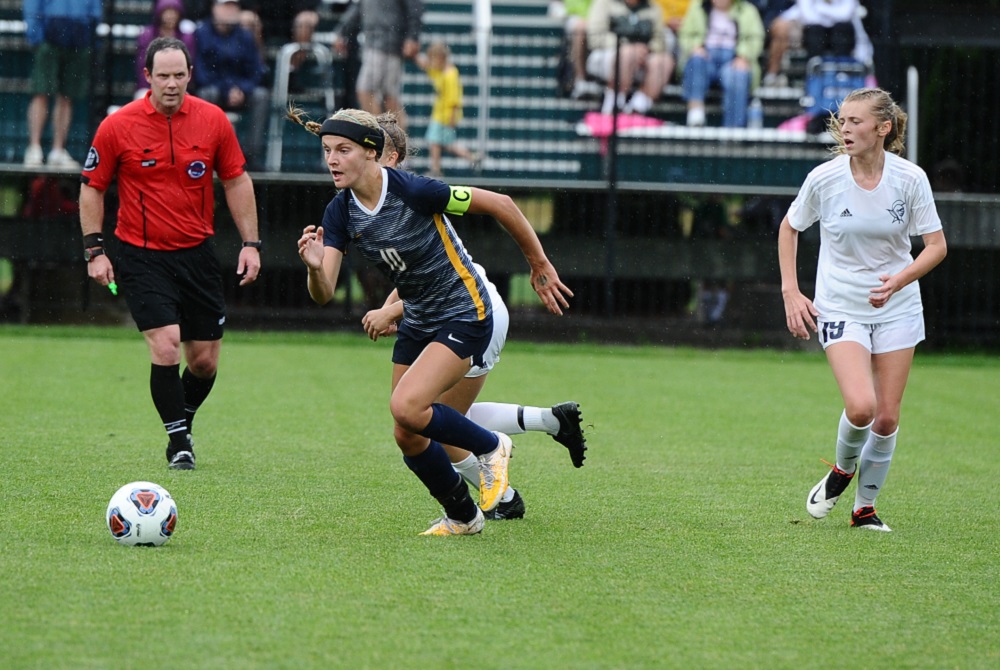
Moment: Central Wins Big for West Michigan
May 4, 2020
By Geoff Kimmerly
Second Half editor
Winning the 2009 Division 1 championship was a major accomplishment – of course – for the Portage Central girls soccer program.
But it made a pretty loud statement as well for all of girls soccer on the west side of the state.
While teams from the Grand Rapids and Kalamazoo areas had dominated Divisions 3 and 4, and had nice success as well in Division 2 and the former Class B (before the sport went to divisions in 1998), no team from the state’s west side had won the Class or Division of the state’s largest schools since girls soccer became an MHSAA tournament sport in 1983.
Portage Central became the first in 2009 by completing a 27-0-2 run. Shannon Bennett’s header off Taylore Peterson’s corner kick 39 seconds into overtime gave the Mustangs a 3-2 win over Utica Eisenhower in the Final.
To that point, 24 of the first 26 girls soccer championships in Division 1, Class A or the open class (from 1983-86) had been won by schools from Metro Detroit. The other two were won by Saginaw Heritage in 2002 and Ann Arbor Huron in 2008.
The 2009 championship was the second for Portage Central – it previously had won Division 2 in 2000. Bennett went on to play at Robert Morris University, and Peterson played at Illinois.
Click for coverage of the 2009 Final from the Kalamazoo Gazette and watch the winner below from the MHSAA Network.

Be the Referee: Soccer Referee Jersey Colors
By
Sam Davis
MHSAA Director of Officials
November 1, 2022
Be The Referee is a series of short messages designed to help educate people on the rules of different sports, to help them better understand the art of officiating, and to recruit officials.
Below is this week's segment – Soccer Referee Jersey Colors - Listen
A soccer match is about to start between two teams – one wearing road white uniforms and one wearing its home blues. It’s pretty easy to spot the referee in the middle of the field wearing a bright yellow referee jersey.
But what if the home team is nicknamed the Yellow Jackets and they are also wearing bright yellow jerseys?
Soccer officials come prepared. They have a number of different colored jerseys, so they can wear something that contrasts with both teams. While yellow is the default color, they can very easily change into a distinctive uniform if needed – as red, blue, green and black are also acceptable colors. They may even choose to wear a color different from what the goalkeepers are wearing. The last thing a referee wants is to be mistaken for a player on the field.
Previous Editions:
Oct. 18: Cross Country Tie-Breaker - Listen
Oct. 11: Soccer Shootouts - Listen
Oct. 11: Safety in End Zone - Listen
Oct. 4: Football Overtime Penalty - Listen
Sept. 27: Kickoff Goal - Listen
Sept. 20: Soccer Timing - Listen
Sept. 13: Volleyball Replays - Listen
Sept. 6: Switching Sides - Listen
Aug. 30: Play Clock - Listen
Aug. 23: Intentional Grounding Change - Listen

